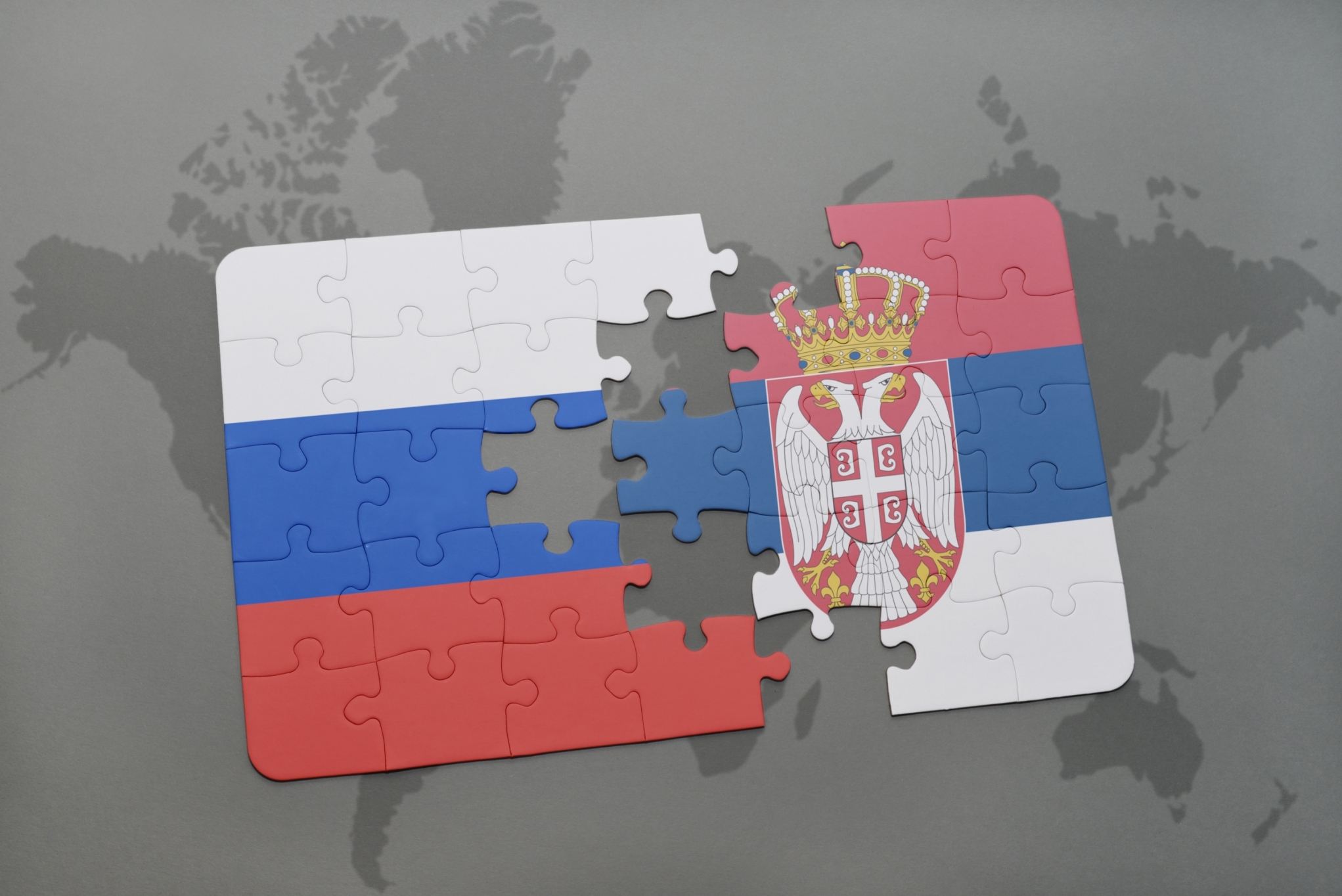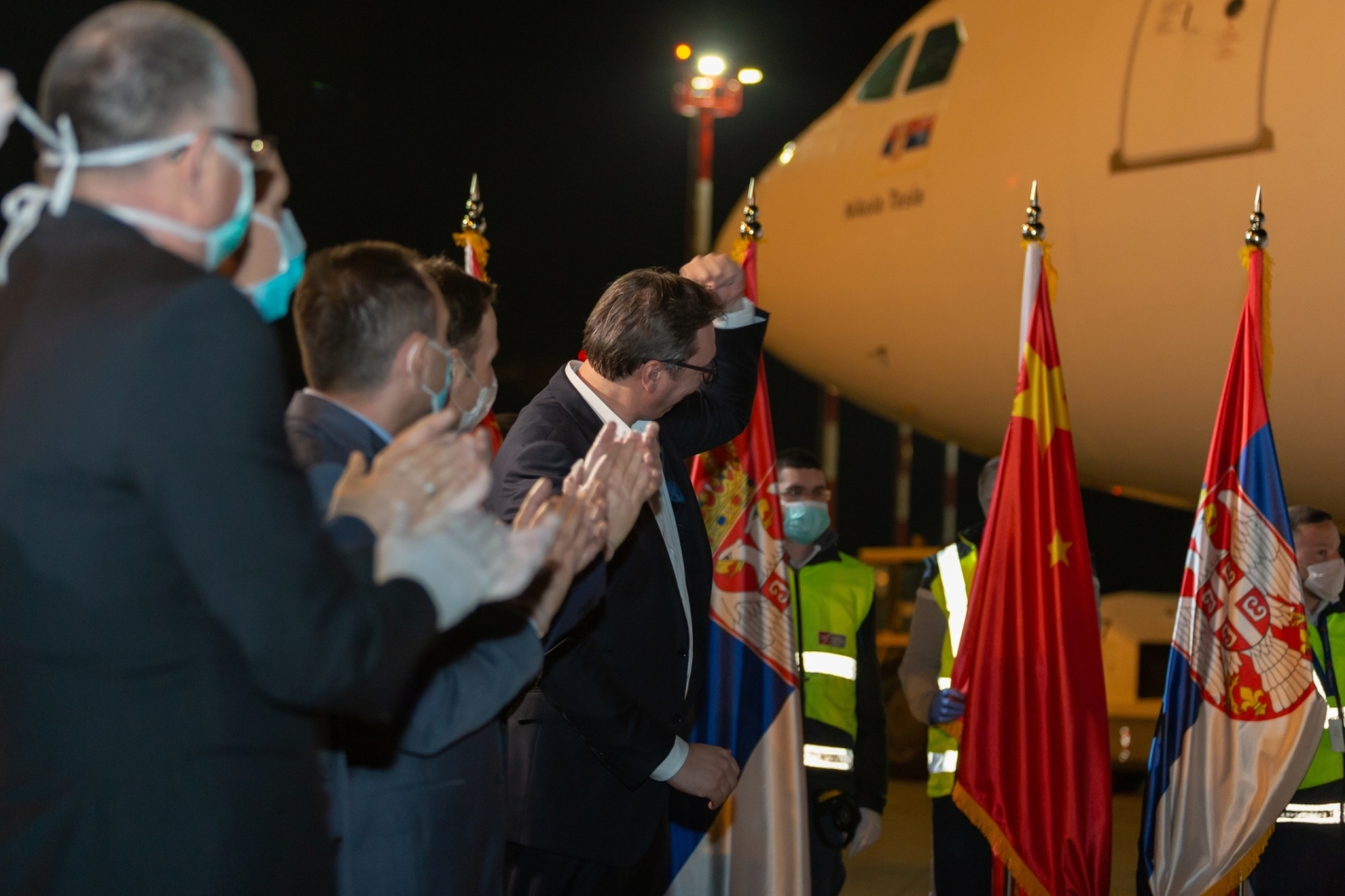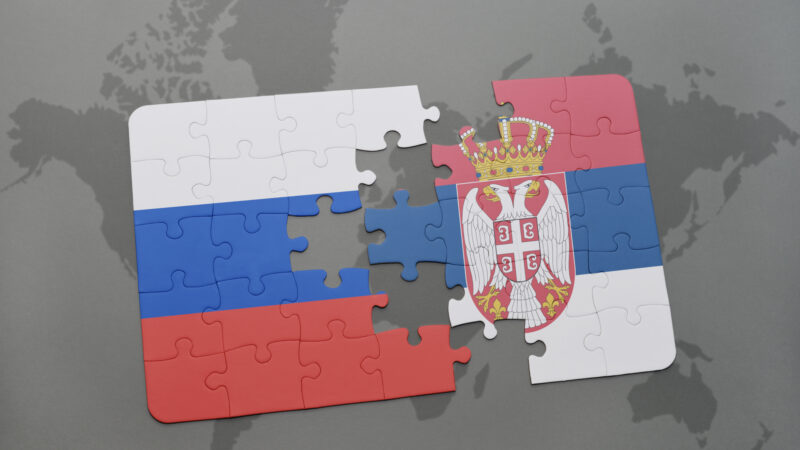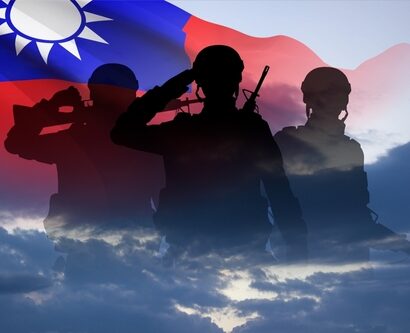Abstract: Serbia, an EU candidate state since 2012, benefits from EU visa liberalisation, trade, and integration support. In fact, to date, and out of all prospective candidate states in the Balkans, it is the largest recipient of EU pre-accession funds. The President of the EU Commission, Ursula Von der Leyen’s visit in October 2022 to Serbia’s President Aleksandar Vucic, signalled urgency and hopeful aspiration regarding the EU adding Serbia to the Union member states. Still, as much as the EU wishes to steer Serbia away from falling into the influence and sphere of Russia and China, the former fails to accept that such has already occurred. Proper measures need to be taken to deal with Serbia’s Eastern alignment. Rather than extraneously provide funding in hopes of eventual integration, the EU should understand Serbia and Aleksandar Vucic’s government for what it is. Particularly, it must acknowledge the anti-Western foreign policy Serbia has and is committed to continuing pursuing.
Problem statement: What can we make of the EU’s eagerness to expand its membership to Serbia, considering the potential of greater power and influence from Russia and China into the Union?
Bottom-line-up-front: Touted as playing the East and West to its benefit, Serbia has already positioned itself East. While simultaneously benefiting from the West’s support, trade, and funds, it continues with hopes that it will join the EU. The EU should accept that not every European country belongs to the EU. Serbia’s continuous bond with China, particularly with Russia, continues to grow, despite President Aleksandar Vucic’s verbal desire to join the EU with his back-and-forth rhetoric. Its deteriorating democracy, questionable foreign policy decisions, and lack of public support to join the bloc make Serbia more of a foe than a friend to the West and the EU.
So what?: If the EU is determined to strengthen its strategic autonomy, gain greater worldwide credibility and grow on the international stage, it should consider suspending visa liberalisation to Serbia, freezing its EU candidacy status, and decreasing financial aid. The reason for this is Serbia’s weaponisation of migrants, continuous foreign policy non-alignment to that of the EU, support for Russia in times of war, deteriorating democracy, lack of public support, and anti-EU and Western rhetoric.

Source: shutterstock.com/esfera
The Largest Recipient of EU Pre-Accession Funds
With the onslaught of Russia’s war in Ukraine, a prospective European Union (EU) candidate country, Serbia, has further unveiled its positioning in the world order towards the East, i.e., Russia and China. Being an EU candidate state since 2012, Serbia has benefited from EU visa liberalisation, trade, integration support and, at present, is the largest recipient of EU pre-accession funds out of all prospective EU candidate states in the Balkans. The President of the EU Commission, Ursula Von der Leyen’s visit in October 2022 to Serbia’s President Aleksandar Vucic, signaled urgency and hopeful aspiration for the EU to add Serbia to the Union. As much as the EU wishes to steer Serbia away from falling into the influence of Russia and China, it fails to accept that it has already occurred and that proper measures must be taken to deal with Serbia’s Eastern alignment. Rather than extraneously provide funding in hopes of eventual integration, the EU should treat Serbia and Aleksandar Vucic’s government for what it is. That means discerning the anti-Western foreign policy Serbia has and is committed to continuing pursuing – particularly regarding overwhelming support for Russia’s war in Ukraine, its closeness to Russia and China, and misusing visa liberalisation to third countries to surge illegal migration to the EU.[1] Likewise, the lack of public support for the EU, the anti-western messages propelled by the media, and its further divide of democracy and democratic values cement why not every European country should be part of the EU.
With the onslaught of Russia’s war in Ukraine, a prospective European Union (EU) candidate country, Serbia, has further unveiled its positioning in the world order towards the East.
Foreign Policy Tilted Eastward
One of the requirements for a potential EU member state is to align its foreign policy according to the EU’s Common Foreign and Security Policy (CFSP). Considering Serbia’s foreign policy, as of this year alone, it appears the country is going in the opposite direction than President Vucic proclaims to his Western counterparts.[2] The main factors that put the validity of Serbia’s EU commitment into question are:
- Failing to impose sanctions on Russia;
- Strengthening cooperation in foreign policy with Russia; and
- Entering extensive bilateral agreements with Egypt and Turkey.
Nonetheless, the EU’s commitment to Serbia’s accession is strong, judging by the financial assistance the country has received since becoming a candidate in 2012. The former is the “biggest donor” in pre-accession funds, which aim to support Serbia’s readiness for membership, comprising more than €3.6 billion over the past 18 years. The EU is also the greatest lender, “with more than €4.3 billion worth of loan agreements”.[3] In fact, it has already given €122.14 million in new pre-accession funds that began in 2021 and are set to last until 2027.[4] Without a doubt, Serbia is the largest beneficiary of all EU candidate states.
The EU is also the greatest lender, with more than €4.3 billion worth of loan agreements.
After waging war in Ukraine in February 2022, the EU and mainly Western nations imposed stringent sanctions, among other factors, to counter Russia’s aggression. In contrast, Serbia and Vucic’s closeness to Russia and Vladimir Putin have taken an alternative stance to the war. Serbia has neither condemned nor imposed sanctions on Russia as would be expected of EU candidates and member states. Belgrade has maintained its political and economic relationship with the Kremlin relatively the same, if not tightened. It appears that Serbia has done the bare minimum to side with the EU’s stance in the UN General Assembly to seem externally on the fence between Russia and the EU.[5]
The relationship between Belgrade and Moscow is threefold, which leads up to the present. Firstly, as flights throughout Europe were no longer flying to Russia, Serbia took advantage of the opportunity to keep flights between the countries in operation, increasing the frequency of its national airline, Air Serbia flights. Consequently, almost 45,000 (44,531) Russians arrived in Serbia as of May 2022.[6] Serbia is particularly attractive to Russians, as the countries have visa liberalisation, a shared common orthodox religion, and Serbia’s general fondness towards Russia.[7] This can be observed in how Vladamir Putin remains the public’s most popular foreign leader since the beginning of the war in Ukraine, the rallies and street art showcasing support for Russia’s war, and the continued respective government’s cooperation.[8] In addition to an influx of Russians in Serbia, over 1,000 businesses have been registered by Russians in the country, mainly in the IT sector.[9] Serbia is a convenient gateway for Russians to reach Europe, as the EU suspended all flights to and from Russia.
Secondly, in late September 2022, Serbia and Russia signed a consultation agreement on foreign policy decisions. This agreement is set to last for two years; therefore, it can be assumed that Serbia will not be getting any closer to aligning its foreign policies with the EU.[10] That contradicts President Vucic’s verbal commitments of strategic priority to join the bloc. Between 2021 and 2022, the European Commission’s report on Serbia’s candidacy indicated a decrease in foreign policy alignment from 64% in 2021 to 45% in 2022.[11] This implies Serbia’s commitment and continuing relations with Russia remain unaffected by the war. In addition, Serbia has also signed an “extremely favourable three-year natural gas supply deal with Russia” according to Vucic.[12] As the EU takes a path phasing out reliance on Russian energy, Serbia seizes the opportunity to ramp up its Russian energy supplies. This is only a natural step for Serbia, given that Russian companies have already controlled its oil and gas sectors since 2008.[13] The European Commission’s 2022 report has also criticised Serbia for conducting visits with senior Russian officials sanctioned by the EU.[14] One such recent visit was with Turko Daudov, advisor to the head of the Chechen Republic, Ramzan Kadyrov, in which Vucic proudly posed in traditional Chechen attire. At the same time, Daudov expressed his gratitude for Serbia’s “support for the Russian Federation” and its “centuries-old fraternal relations”.[15]
Thirdly, it is integral to gain a glimpse of Serbia’s stronghold and loyalty to Russia in times of Russia’s aggression. With Belarus and Serbia being the only European countries to outwardly demonstrate support for Russia’s war, in Serbia’s case, shared ideology and struggle in its own region for dominance is what binds this unbreakable bond. One of the motives behind Russia’s war in Ukraine stems from an ideology of a ‘Russian World’, a struggle for Russia to unite all ethnic Russians and restore territories it had ruled over in its history. Apart from a shared Eastern Christian Orthodox religion, Serbia shares an overarching ideological view with Russia. The concept of ‘Greater Serbia’, originated in 1844 by a Serbian statesman Ilija Garašanin, who advocated for “the unification of all ethnic Serbs under one rule” in which “fulfillment may only be realised with the incorporation of all Balkan lands currently and historically populated by Serbs”.[16] This nationalistic ideology has inspired Serbian leaders since its publication. It inspired nationalists to assassinate Habsburg Archduke Franz Ferdinand, which sparked the First World War and continues to inspire Serbian nationalists today. Vucic’s current nationalist government is said to continue to pursue this ideology clandestinely by looking to Russia for political support while simultaneously portraying a disingenuous commitment to the West for financial support.[17] Historian, Christopher Clark, argues that throughout its history, Serbia looked to Russia to achieve its political objectives and that “Greater Serbia was unachievable without Russia’s direct support”.[18] At present, this explains Serbia’s ongoing disputes with former Yugoslavian neighbours, its burgeoning militarisation efforts, and its meddling in other Balkan countries’ politics with Russia’s backing through various means, which are unlikely to abate over time.[19] Certainly, Serbia’s support for Russia’s aggression and the persevering friendly relations is not new, while room for adjusting Serbia’s foreign policy away from Russia is little to none. The relationship between the two is rooted in the past, binding an ideological and historical vision incompatible with Western liberal values.
Vucic’s current nationalist government is said to continue to pursue this ideology clandestinely by looking to Russia for political support while simultaneously portraying a disingenuous commitment to the West for financial support.

Source: shutterstock.com/SkyStudioRS
Expanding Chinese, Turkish, and Egyptian Relations
In addition to Russia’s role in Serbia, the Serbian government has welcomed an increasingly autocratic China (under Xi Jinping’s leadership). Apart from an immensely positive Covid-19 vaccine diplomacy conducted in Serbia, where Vucic is photographed kissing the Chinese flag, China’s interests dive deeper. Its focus was mainly on infrastructure investment through its Belt and Road Initiative (BRI), but over recent years, this relationship has extended to military procurement. China has been particularly interested in Serbia’s telecom and broadband sectors, with its Huawei company taking the lead.[20] In 2016, the United States, under former President Donald Trump, offered Serbia an alternative 5G Clean Network Initiative, albeit to no avail. The relationship exhibited between China, and Serbia is one of quid pro quo and autocratic ideology. China has dreams of uniting Taiwan under its One China Policy, while Serbia wishes to reclaim Kosovo. The quid pro quo can be exemplified in international organisations such as the United Nations, where the nations vote for each other’s political objectives.[21] There are currently over 61 infrastructure projects underway by China in Serbia, aggregating the largest amount of investment China devotes to the Balkans.[22] The surging relationship has flourished with China exporting military equipment such as drones and missiles, and a strong possibility of a free trade agreement is expected by the end of 2022.[23] Currently, only Belarus and Serbia are purchasing Chinese armaments in Europe, and only Switzerland and Iceland have established free trade agreements with China. Chinese investment is more attractive to increasingly authoritarian Serbia, as there are few conditions, if any, unlike investment from the Western counterparts.[24]
Apart from an immensely positive Covid-19 vaccine diplomacy conducted in Serbia, where Vucic is photographed kissing the Chinese flag, China’s interests dive deeper.
Apart from an expected Chinese free trade agreement, Serbia is constructing bilateral agreements with other authoritarian governments, i.e., Egypt and Turkey. Vucic and his Egyptian counterpart Abdel Fattah al-Sisi established an extensive bilateral cooperation agreement in mid-2022. It is expected that the two will partake in 13 different agreements ranging from political and international issues to military and defence cooperation.[25] Moreover, visa liberalisation for diplomatic officials is also set to unravel, a trend Serbia has opened to over 20 nations that otherwise require visas for the EU. President Recep Tayyip Erdogan’s Balkan tour has also secured seven agreements with Serbia regarding the “economy, industry, technology, and a passport-free travel for nationals on both sides”[26] – an unusual political move sought by an EU candidate country trying to further its EU application. In 2022 alone, Serbia appears to willingly distance itself from aligning its foreign policy with that of the EU.
Weaponising Migration Through Visa Liberalisation
In recent years, Serbia has been suspected and, as of this year, apprehended by the EU for weaponising migration. The act of pushing migrants from the Middle East and Africa is a form of hybrid warfare that Belarus, under President Alexander Lukashenka, was infamously known for in 2021, when the EU severely sanctioned Belarus for Lukashenka’s acute human rights violations. Belarus would allow easy access to third countries to reach Belarus, and then Belarussian authorities would push those people to cross over into EU member states. Turkey and Russia used this tactic during the migration crisis in 2015 and 2016.[27]
Similarly, Serbia has been facilitating visa liberalisation with 22 third countries that require visas for the EU. The list includes Armenia, Azerbaijan, Bahrain, Belarus, Burundi, China, Cuba, Guinea Bissau, India, Indonesia, Jamaica, Kyrgyzstan, Kuwait, Kazakhstan, Mongolia, Oman, Qatar, Russia, Suriname, Tunisia, and Turkey. The EU’s external border agency, Frontex, reported a 170% surge of illegal migrant border crossings into the EU this year alone from Serbia. As presumed, a large portion of the illegal migrants originate from Tunisia, Turkey, Burundi, India, and Egypt, all leniently allowed to enter Serbia and continue westward. Purportedly, Serbia has been awarding visa liberalisation to countries that have refused or retracted their recognition of Kosovo as a sovereign state.[28] The European Commission has ardently criticised Serbia’s visa policy, illegal migration crossings, and misuse of its visa liberalisation with the EU. However, Vucic has assured the EU that Serbia will align its visa policy accordingly. Nevertheless, this is difficult to postulate as time moves forward and progress has not been realised.
Devolving Democracy and Anti-EU and Western Rhetoric
Since the dissolution of Yugoslavia, Serbia went from a socialist system to a democracy. This transition started with an upward projection and has steadily declined over the years. According to Freedom House, the country is considered to be in a ‘transitional or hybrid regime’, scoring in 2015 at 55/100 and, as of the latest, at 46/100.[29] Media freedom is questionable as it is linked to the state.[30] Meaning: it gives the state an upper hand in delivering news and propagating its desired viewpoint to the public. In 2017, the President of the European Federation of Journalists, Mogens Blicher Bjerregård, went as far as to criticise Serbia as the “nation with the worst violations of media freedom in the Balkans”.[31] Furthermore, Bjerregård proceeded to criticise the EU and EU officials for “repetitively looking the other way” when it comes to Serbia’s freedom deterioration and violations, touted as the pinnacle of EU’s values and principles.
Accordingly, the media in Serbia has the propensity to disparage the EU and the US while reporting on Russia and China in reverence. Hence, ⅔ of Serbs believe it was NATO’s fault for the war in Ukraine, 51% are against joining the EU, and 54% view Russia as an ally, while 95% view Russia as a necessary partner.[32] An anti-western narrative propagated to the media has shaped the public’s opinion despite the government’s strategic priority to join the EU. While Serbia receives the most financial aid from the EU and the US, Serbs believe Russia and China are the largest contributors. As a result of the media’s portrayal of the Ukraine-Russia war, some Serbs have gone as far as to hold pro-Russian rallies “in which the crowd cheered Putin and the letter Z was scrawled on the asphalt”.[33] It is not surprising that Vucic refuses to impose sanctions against Russia as the majority of the public is against such a move. In the same light, aid and Western support and cooperation are significantly downplayed and hardly known to the general public.
The European Union’s Flawed Reciprocity
The EU continues to have high hopes for Serbia and its integration into the EU. President of the European Commission, Ursula Von der Leyen, expressed the EU’s recent sentiment towards Serbia during her visit in late 2022, stating “that the European Union is, and will remain Serbia’s most important political and economic partner”.[34] An economic partner, undoubtedly so, but a political partner, it has never been. Serbia likes the financial benefits it garners from the EU, but its politics couldn’t be further from those of the latter. Moreover, the recent disputes over Kosovo license plates in which Kosovo merely reciprocated Serbia’s license plate policy for Northern Kosovars have caused worry amongst the international community over a possible violent escalation. The EU’s Foreign Affairs Chief, Josep Borrell, failing to reach a deal between Vucic and Kosovo’s Prime Minister Albin Kurti, concluded by placing most of the blame on Kosovo,[35] consequently appeasing the aggressor whilst disciplining a state for practicing reciprocity.
The EU’s 2022 report on Serbia’s progress has significantly declined from previous years and has outlined several shortcomings, mainly within migration and foreign policy. Despite regression and telling foreign policy behaviour during Russia’s war, the EU has merely criticised Serbia, and no concrete action has been taken to apprehend Serbia besides verbal disapproval. Serbia continues to benefit from visa liberalisation with the EU, despite violating the first clause of the visa suspension mechanism in which “a sudden increase of irregular migrants” can trigger a suspension. As revealed in the previous section, Serbia’s concrete violations within this realm have been grossly violated by a surge of 170% of illegal crossings, which are encouraged by its visa liberalisation with 22 third countries posing security threats to the EU,[36] mimicking Belarus’s behaviour in 2021. The European Commissioner for Home Affairs, Ylva Johansson, has criticised this move by hinting at “suspending Serbia’s visa-waiver access to the bloc if the country does not stop irregular migration from its territory into the EU”.[37] Much criticism comes from the EU but is never turned into actionable apprehension.
Despite regression and telling foreign policy behaviour during Russia’s war, the EU has merely criticised Serbia, and no concrete action has been taken to apprehend Serbia besides verbal disapproval.
In addition to violating its visa liberalisation, Serbia is not practicing good relations with its neighbours. Apart from continuous spats with Kosovo, Serbia has been violating an EU member state, Croatia. At borders, Croatian diplomatic officials have been placed under “special regime of control” following Vucic’s provocative attempted visit to the nation in July.[38] This is one of the most serious violations that the EU failed to report on and act on, given that Croatia is an EU member state. Regardless of the continuous visa liberalisation violations, declining freedom, and drifting further from EU foreign policy, Serbia is awarded copious pre-accession funds, support, and access throughout the EU, while exhibiting anti-EU and provocative behaviour at home and abroad. In the relentless hope that Serbia can be the pillar of stability in the Balkans and eventually turn towards the West, EU officials fail to realise the country’s deep-rooted ideology, historical legacies, and the reality of its current positioning. In times of war in Europe, the immense commitment and support given to Ukraine by the EU runs contradictory to EU’s policy toward Serbia, a country that supports Russia’s aggression. The EU’s stance on Serbia draws a fine line of hypocrisy while undermining the credibility of its democratic values and principles.
Policy Recommendations
If the EU is determined to strengthen its strategic autonomy, gain greater credibility in the world and grow on the international stage, it needs to practice what it preaches and avoid appeasing aggressors. Turkey was once an active EU candidate state. However, its proven violations in different domains caused the EU to freeze Turkey’s candidacy in 2016. Serbia’s violations in the above-mentioned realms, with no progress and contradictory games played by Vucic, set the stage for the EU to impose the same conditions for Serbia and suspend visa liberalisation at once. EU funds and support do not come without conditions and, therefore, should be strategically dispersed to countries in Europe exhibiting progress and desire to become part of the bloc. Although the Balkan region is complicated, where different clashes of ideologies and civilisations are tough to manage, the answer is not to overlook their flaws and behaviour by adding them to the bloc without proven progress. The EU is currently battling with internal issues of unity, particularly with Hungary’s steer toward autocracy. Therefore, adding another state that exhibits even greater divergence from EU’s values and principles should not be considered an option.
Turkey was once an active EU candidate state. However, its proven violations in different domains caused the EU to freeze Turkey’s candidacy in 2016.
For the EU, the following actions are recommended:
- It should immediately suspend Serbia’s visa liberalisation. Serbia has already violated the first clause of the suspension process by encouraging migration from third countries to enter Serbia and continue westwards. Serbia has also violated an EU member state (Croatia)’s rights at borders and continues to do so.
- The EU should freeze Serbia’s candidacy status. The lack of progress within many domains, particularly foreign policy alignment digression, indicates that the country is not ready but more importantly, not committed about joining the bloc. Moreover, Serbia’s plans and future cooperation agreements with autocratic states show that Serbia does not plan to align its foreign policy to that of the EU’s in the future. Serbia has also shown support for Russia and its war in Ukraine which run strongly against the EU’s stance.
- The EU’s pre-accession funds should be significantly reduced and, upon progress, steadily increased. Serbia is the largest recipient of EU pre-accession funds out of all EU candidate states. Countries progressing and aligning with the EU should be awarded greater funds and economic cooperation.
According to some Members of the European Parliament (MEP), a call for freezing accession talks and funding has been brought to the agenda.[39] Nevertheless, the issue is not seriously considered and continues to be buck-passed. EU officials need to take action so as to uphold the credibility of the union.
Conclusion
The EU is strong, especially when it encompasses like-minded states and acts cohesively. As much as unity is difficult to achieve and the EU struggles to make it work, adding disinterested and disparate European states is not the answer to tilting them towards democracy and the West. Russia and China will influence Serbia, whether Serbia is a part of the EU or not. Serbia, particularly Vucic’s government’s values and thinking resonate with its Eastern partners and will presumably not be quenched by EU membership. The conundrum thus becomes: does the EU want to expand its membership to Serbia and allow greater lengths of power and influence from Russia and China into the Union? Or is it safer for the EU to project power by strengthening the unity of its existing members and supporting European countries that want to sincerely join the bloc? Either way, the EU needs to support and dedicate its financial assistance to countries that share its values and want to prosper democratically over those that support aggressors and autocratic values.
Lana Pedisic is a Research Fellow at Europanova Germany. She is passionate about international and security affairs with a focus on the European Foreign and Security Policy, Global Gateway, Belt and Road Initiative, and EU-China relations. She holds an MA in Global Security and Strategy from Brussels School of Governance and a BSc in International Business from Rochester Institute of Technology. The views contained in this article are the author’s alone.
[1] Andi Hoxhaj, “Ukraine War: Serbia Is Shifting Closer to Russia – Here’s Why,” The Conversation, November 7, 2022, https://theconversation.com/ukraine-war-serbia-is-shifting-closer-to-russia-heres-why-192472.
[2] “Full EU Membership Strategic Commitment of Serbia,” Serbian Government, November 16, 2021, Serbian Government, last accessed December 02, 2022, https://www.srbija.gov.rs/vest/en/181231/full-eu-membership-strategic-commitment-of-serbia.php.
[3] “EU Assistance to Serbia,” EU u Srbiji, October 4, 2018, last accessed December 02, 2022, https://europa.rs/eu-assistance-to-serbia/?lang=en.
[4] Rep. COMMISSION STAFF WORKING DOCUMENT Serbia 2022 Report, Brussels: European Commission, 2022, last accessed December 02, 2022, https://www.mei.gov.rs/upload/documents/eu_dokumenta/godisnji_izvestaji_ek_o_napretku/ec-report-2022.pdf.
[5] Idem.
[6] Milica Stojanovic, “Russian Flights Tickets to Serbia, Turkey, Sell out after Mobilization,” Balkan Insight, September 22, 2022, last accessed December 02, 2022, https://balkaninsight.com/2022/09/21/russian-flights-tickets-to-serbia-turkey-sell-out-after-mobilization/.
[7] Idro Seferi and Rüdiger Rossig, “A One-Way Ticket from Moscow to Belgrade – DW – 08/13/2022,” dw.com. Deutsche Welle, August 13, 2022, https://www.dw.com/en/russians-are-increasingly-flocking-to-visa-free-serbia/a-62792799.
[8] Ivana Petronijević Terzić, “Where the Double Game of Government with European Integration Has Brought Us,” research, news, columns, Demostat, August 13, 2022.
[9] Idro Seferi and Rüdiger Rossig, “A One-Way Ticket from Moscow to Belgrade – DW – 08/13/2022,” dw.com. Deutsche Welle, August 13, 2022, https://www.dw.com/en/russians-are-increasingly-flocking-to-visa-free-serbia/a-62792799.
[10] “EU Candidate Serbia and Russia Sign Foreign Policy Agreement,” The Independent, Independent Digital News and Media, September 24, 2022, https://www.independent.co.uk/news/uk/politics/serbia-ap-russia-new-york-aleksandar-vucic-b2174618.html.
[11] Rep. COMMISSION STAFF WORKING DOCUMENT Serbia 2022 Report, Brussels: European Commission, 2022, last accessed December 02, 2022, https://www.mei.gov.rs/upload/documents/eu_dokumenta/godisnji_izvestaji_ek_o_napretku/ec-report-2022.pdf.
[12] “Serbia’s VUCIC Says He Agreed a Three-Year Gas Supply Contract with Putin,” Reuters, Thomson Reuters, May 29, 2022, last accessed December 02, 2022, https://www.reuters.com/world/europe/serbias-vucic-says-agreed-3-year-gas-supply-contract-with-putin-2022-05-29/.
[13] Idem.
[14] Rep. COMMISSION STAFF WORKING DOCUMENT Serbia 2022 Report, Brussels: European Commission, 2022, last accessed December 02, 2022, https://www.mei.gov.rs/upload/documents/eu_dokumenta/godisnji_izvestaji_ek_o_napretku/ec-report-2022.pdf.
[15] N1 Belgrade, “Vucic Poses in Chechen Traditional Clothing with Kadyrov’s Advisor,” N1, November 15, 2022, https://rs.n1info.com/english/news/vucic-poses-in-chechen-traditional-clothing-with-kadyrovs-advisor/.
[16] Richard Kraemer, “Foreign Policy Research Institute – International Policy Think Tank,” Foreign Policy Research Institute, March 2022, https://www.fpri.org/wp-content/uploads/2022/03/serbia-on-the-edge-issuu.pdf.
[17] Idem.
[18] Christopher M. Clark, The Sleepwalkers: How Europe Went to War in 1914, (New York: Harper Perennial, 2012).
[19] Iryna Stasiukevych and Michal Malovec, EU sanctions against Russia Alignment of the EU enlargement countries (2022); and HINA, “Vučić Najavio Da Srbija Ulaže 100 Milijuna Eura U Vojnu Industriju,” index.hr. Index.hr, October 8, 2022, https://www.index.hr/vijesti/clanak/vucic-najavio-da-srbija-ulaze-100-milijuna-eura-u-vojnu-industriju/2401622.aspx.
[20] Richard Kraemer, “Foreign Policy Research Institute – International Policy Think Tank,” Foreign Policy Research Institute, March 2022, https://www.fpri.org/wp-content/uploads/2022/03/serbia-on-the-edge-issuu.pdf.
[21] James Shotter, Sam Fleming and Ben Hall, “How Migration Became a Weapon in a ‘Hybrid War’,” Subscribe to read | Financial Times. Financial Times, December 5, 2021, https://www.ft.com/content/83ece7e4-cc71-45b5-8db7-766066215612.
[22] Amanda Coakley, “Serbia Is Playing with Matches Again,” Foreign Policy, August 3, 2022, https://foreignpolicy.com/2022/08/03/serbia-kosovo-russia-eu-tensions/; Anadolu Agency, “Serbia, Egypt Agree to Bolster Military Cooperation,” Daily Sabah, July 20, 2022, last accessed December 02, 2022, https://www.dailysabah.com/world/mid-east/serbia-egypt-agree-to-bolster-military-cooperation.
[23] HINA, “Vučić Najavio Da Srbija Ulaže 100 Milijuna Eura U Vojnu Industriju,” index.hr. Index.hr, October 08, 2022, https://www.index.hr/vijesti/clanak/vucic-najavio-da-srbija-ulaze-100-milijuna-eura-u-vojnu-industriju/2401622.aspx; Amanda Coakley, “Serbia Is Playing with Matches Again.” Foreign Policy, August 03, 2022, https://foreignpolicy.com/2022/08/03/serbia-kosovo-russia-eu-tensions/.
[24] “Serbia: Freedom in the World 2022 Country Report,” Freedom House, 2022, https://freedomhouse.org/country/serbia/freedom-world/2022.
[25] Anadolu Agency, “Serbia, Egypt Agree to Bolster Military Cooperation,” Daily Sabah, July 20, 2022, last accessed December 02, 2022, https://www.dailysabah.com/world/mid-east/serbia-egypt-agree-to-bolster-military-cooperation.
[26] Diyar Guldogan, “Under New Agreement, Serbians Visiting Türkiye Will Set New Record: President,” Anadolu Ajansı, September 07, 2022, https://www.aa.com.tr/en/turkiye/under-new-agreement-serbians-visiting-turkiye-will-set-new-record-president/2679254.
[27] F. L. Hina, “Pučani: Srbija Odgovorna Za Porast Broja Ilegalnih Migranata Na Granicama EU-A,” tportal.hr. tportal.hr, October 18, 2022, https://www.tportal.hr/vijesti/clanak/pucani-srbija-odgovorna-za-porast-broja-ilegalnih-migranata-na-granicama-eu-a-20221018.
[28] “Serbia: Freedom in the World 2022 Country Report,” Freedom House, 2022, https://freedomhouse.org/country/serbia/freedom-world/2022.
[29] Dragana Bajić and Wouter Zweers, “The EU: Defender of Media Freedom in Serbia?: Declining Media Freedom and Biased Reporting on Foreign Actors in Serbia,” The EU: defender of media freedom in Serbia? | Declining media freedom and biased reporting on foreign actors in Serbia, July 2020, last accessed December 02, 2022, https://www.clingendael.org/pub/2020/declining-media-freedom-and-biased-reporting-in-serbia/4-the-eu-defender-of-media-freedom-in-serbia/.
[30] Aleks Eror, “How Aleksandar Vucic Became Europe’s Favorite Autocrat,” Foreign Policy, March 9, 2018, last accessed December 02, 2022, https://foreignpolicy.com/2018/03/09/how-aleksandar-vucic-became-europes-favorite-autocrat/.
[31] Idem.
[32] James Stavridis, “Ukraine War: Putin Is Pushing Serbia and Bosnia to Back Russia,” Bloomberg.com, Bloomberg, October 4, 2022, https://www.bloomberg.com/opinion/articles/2022-10-04/ukraine-war-putin-is-pushing-serbia-and-bosnia-to-back-russia; Ivana Petronijević Terzić, “Where The Double Game of Government with European Integration Has Brought US,” research, news, columns, August 13, 2022, https://demostat.rs/en/vesti/analize/where-the-double-game-of-government-with-european-integration-has-brought-us/1539; Engjellushe Morina, “Bound to Russia: Serbia’s Disruptive Neutrality,” ECFR, March 14, 2022, last accessed December 02, 2022, https://ecfr.eu/article/bound-to-russia-serbias-disruptive-neutrality/.
[33] Branko Filipovic, “Pro-Russia Serbs March in Belgrade as Country Treads Ever Finer Line between East and West,” Reuters, Thomson Reuters, March 05, 2022, last accessed December 02, 2022, https://www.reuters.com/world/europe/pro-russia-serbs-march-belgrade-country-treads-ever-finer-line-between-east-west-2022-03-04/.
[34] Raf Casert, “EU Revisits Balkans to Win Friends, Seek More Influence,” AP NEWS, Associated Press, October 28, 2022, https://apnews.com/article/europe-china-serbia-ursula-von-der-leyen-european-union-c38315c11b652f106bbc2d5598db4b8f.
[35] Wilhelmine Preussen, “EU Slams Kosovo, Serbia over Car Plates Dispute, as Fears of Violence Grow,” POLITICO, November 22, 2022, https://www.politico.eu/article/eu-kosovo-serbia-escalation-violence-car-plates-dispute-josep-borrell-aleksandar-vucic-albin-kurti/.
[36] Iryna Stasiukevych and Michal Malovec, EU sanctions against Russia Alignment of the EU enlargement countries (2022).
[37] Sasa Dragojlo, “Serbians’ EU Visa-Free Travel Threatened by Migration Policy,” Balkan Insight, October 25, 2022, https://balkaninsight.com/2022/10/14/serbians-eu-visa-free-travel-threatened-by-migration-policy/.
[38] Hina, “Vulin Nakon Zabrane Vučiću: Svi Hrvatski Dužnosnici Od Danas Na Posebnom Režimu,” index.hr. Index.hr, July 17, 2022, last accessed December 02, 2022, https://www.index.hr/vijesti/clanak/vulin-nakon-zabrane-vucicu-svi-hrvatski-duznosnici-od-danas-na-posebnom-rezimu/2380538.aspx.
[39] Iryna Stasiukevych and Michal Malovec, EU sanctions against Russia Alignment of the EU enlargement countries (2022).






